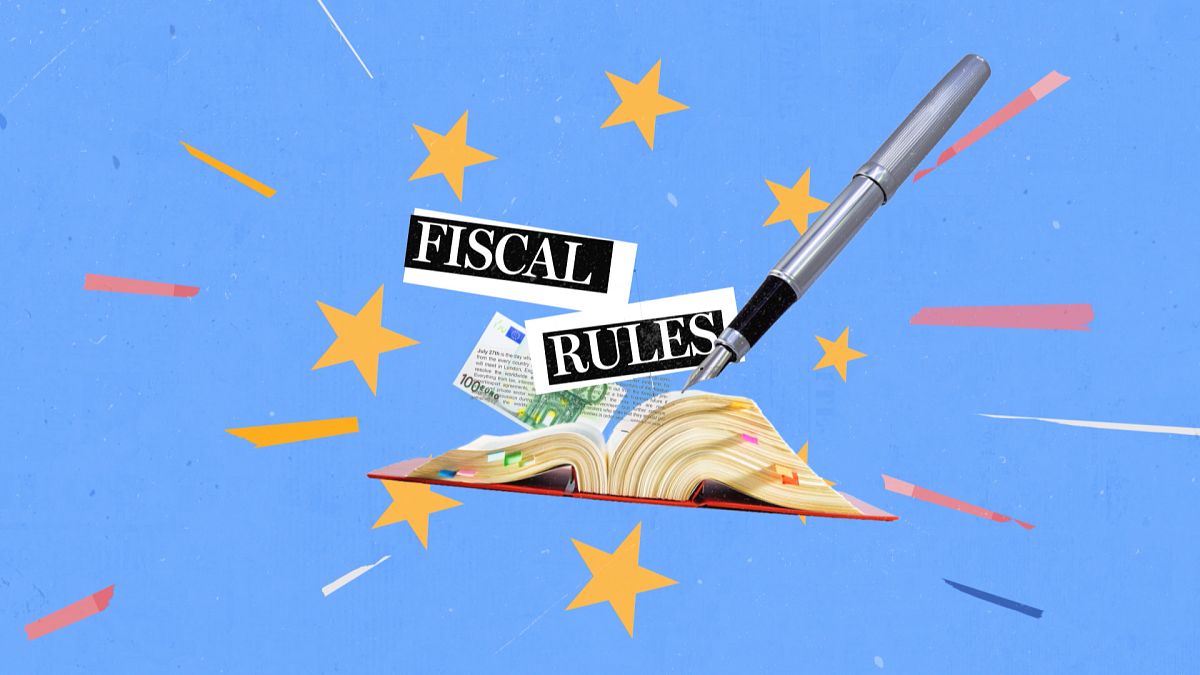The European Commission has unveiled a proposal to reform fiscal rules in the European Union (EU). After the pandemic-induced surge in public debt, the EU aims to put its public finances back in order.
Debt, inflation, wages, and jobs ... We know that it's tricky to understand how the economy works. That's why every episode of Real Economy brings you a one-minute Crash Course to bring you quickly up to speed on the big picture. We explain the headline concepts and lay out how public policy is reacting to changing current affairs and economic trends. Watch your one-minute Crash Course in the video above.
Europe is aiming to rewrite its fiscal rules on government spending and taxes. In quite simple terms, the European Commission wants to make debt levels more manageable and sustainable. Here's a small breakdown of what you need to know.
What are the reasons for this reform?
The main objective of the proposed reform is to ensure more sustainable debt levels across the EU. Many countries had to spend significant amounts of public money in response to the COVID-19 pandemic, the conflict in Ukraine, and the energy crisis.
That means reducing public deficits to below 3% of GDP and public debt to below 60% of GDP, in accordance with the EU Treaties. This will hopefully the bloc's debt gradually reduce.
"Each member state will decide its own fiscal path for four or seven years to come" European Commissioner Paolo Gentiloni for economy told Euronews. " [With] that being your decision, if you significantly deviate from your own decision, the commission is allowed to enforce these decisions and also to decide on enforcement is clearly justified."
The Commission’s proposal aims to give EU countries more control over how they meet these goals, but they will have to adjust their budgets by a minimum of 0.5% of GDP every year until they reach 3%.
14 countries are expected to be outside the 3% limit in 2023, among them are: Italy, France, Romania, Spain and Malta.
What do the new proposals aim to do?
The European Commission's reforms also aim to promote investments in the green and digital transitions. This means supporting initiatives that contribute to environmental sustainability and digital innovation, like windfarm investments or even supercomputers.
Collaboration for Competitiveness
Co-financing initiatives among member states have led to the emergence of European supercomputers rivaling the world's most powerful machines. This collaboration enhances competitiveness in research and industry.
Italy's supercomputer, Leonardo, funded jointly by the Italian government and EuroHPC, exemplifies the importance of public investments. Based in the city of Bologna, it will contribute to weather forecasting, climate change research, drug development, and digital innovation projects.



